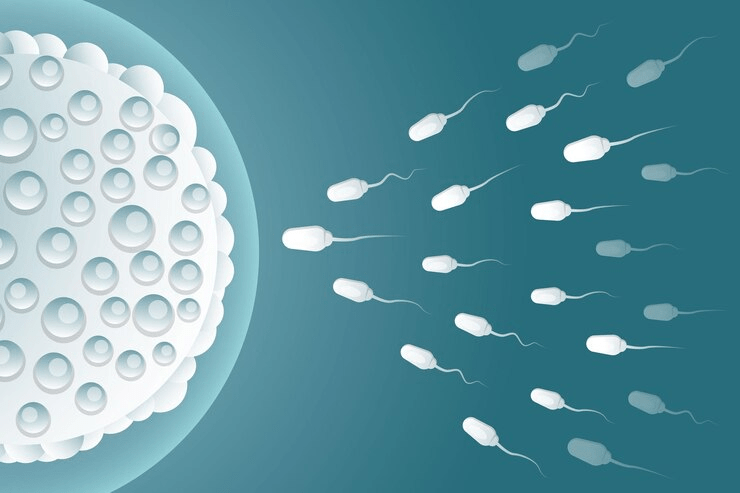
Gene therapy for azoospermia treatment
Introduction Male infertility, especially caused by azoospermia, affects millions of men worldwide. For those suffering from non-obstructive azoospermia, treatment options have been limited. However, thanks

When couples face difficulties conceiving, male fertility is often a crucial factor to consider. Many men wonder, “Can sperm be revived?” — especially after facing issues like low sperm count, poor motility, or even complete absence of sperm (azoospermia). With advancements in medical science and a better understanding of reproductive health, there are now promising methods to revive sperm and restore fertility.
In this detailed guide, we’ll explore the possibilities, techniques, lifestyle changes, medical treatments, and FAQs related to reviving sperm. Whether you’re curious, seeking solutions, or supporting a loved one, this article aims to provide clear and valuable information.
Before answering “Can sperm be revived?” it’s important to understand what the term means.
Sperm revival usually refers to:
Improving the production of sperm in the testes.
Enhancing the quality (motility, morphology) of existing sperm.
Recovering sperm production after a temporary or permanent shutdown (due to illness, injury, lifestyle, or environmental factors).
Retrieving viable sperm surgically in cases where it is absent from the ejaculate.
In simple terms, sperm revival is about restoring or improving the ability to produce healthy, functional sperm capable of fertilizing an egg.
Understanding why sperm quality or quantity decreases is critical to determining if sperm can be revived. Here are some common causes:
Testosterone and other hormones regulate sperm production. Disruptions can severely impact fertility.
Smoking, alcohol, drug use, obesity, poor diet, and stress negatively affect sperm health.
Varicocele (enlarged veins in the scrotum)
Infections (like STDs)
Diabetes
Cancers (especially testicular cancer)
Pesticides
Heavy metals
Radiation
High temperatures (frequent use of saunas, hot tubs)
Some men are born with conditions that affect sperm production.
When these factors are addressed, the next step is determining whether sperm function can be restored — and in many cases, the answer is yes.
The short answer is yes, but it depends on the cause and severity of the issue.
If sperm dysfunction results from temporary, reversible factors (like stress, poor diet, or mild hormonal imbalances), making lifestyle changes and medical interventions often restores fertility. Even in more severe cases, advanced reproductive technologies offer hope.
Let’s dive into the different strategies that help revive sperm:
Many men are surprised to learn that simple lifestyle modifications can have a powerful impact on sperm revival.
A diet rich in antioxidants, vitamins, and minerals supports sperm production. Important nutrients include:
Zinc: Essential for sperm development.
Vitamin C: Protects sperm from oxidative stress.
Vitamin E: Improves sperm motility.
Folate: Supports DNA synthesis in sperm cells.
Omega-3 Fatty Acids: Enhance sperm count and motility.
Foods that boost sperm health: leafy greens, citrus fruits, nuts, seeds, salmon, eggs, and whole grains.
Regular, moderate exercise improves testosterone levels and overall health. However, excessively intense workouts (especially with steroids) can have the opposite effect.
Chronic stress disrupts hormone levels. Techniques like meditation, deep breathing, yoga, and counseling can aid in hormonal balance.
Quit smoking and limit alcohol.
Avoid recreational drugs.
Reduce exposure to heat around the testicular area.
By addressing these factors, many men experience significant improvement in their sperm parameters.
Sometimes, lifestyle changes aren’t enough. Medical interventions are available depending on the underlying cause.
If hormonal imbalances are detected, doctors may prescribe:
Gonadotropins stimulate the testes to produce sperm.
Clomiphene citrate: Boosts natural testosterone production.
A varicocelectomy (surgical repair of enlarged veins) can improve sperm count and quality in many cases.
Antibiotics can clear up infections affecting sperm health. It’s important to complete treatment fully and follow up with your doctor.
When natural conception isn’t possible, assisted methods help:
Intrauterine insemination (IUI): Sperm is directly inserted into the uterus.
In vitro fertilization (IVF): Sperm and egg are combined in a lab.
Intracytoplasmic sperm injection (ICSI): A single sperm is injected into an egg, especially useful when sperm count is extremely low.
For men with no sperm in their semen (azoospermia), doctors can extract sperm directly from the testicles or epididymis using:
TESE (Testicular Sperm Extraction)
PESA (Percutaneous Epididymal Sperm Aspiration)
This shows that even when sperm production seems absent, viable sperm can often be retrieved and used for fertility treatments.
Many natural supplements claim to boost sperm health. While results vary, some evidence-backed supplements include:
Ashwagandha: Boosts testosterone and improves sperm motility.
Coenzyme Q10: Enhances sperm energy and movement.
L-Carnitine: Important for sperm maturation.
Maca Root: May improve sexual function and sperm quality.
Always consult a healthcare provider before starting supplements, as they can interact with other medications.
The field of male fertility is rapidly advancing. Some promising future possibilities include:
Stem Cell Therapy: Research is underway on using stem cells to regenerate sperm production.
Gene Editing: Correcting genetic defects that impair sperm production.
Artificial Sperm: Scientists are experimenting with creating sperm cells from skin cells or stem cells.
Although these treatments are still largely experimental, they offer hope to men who currently have very limited options.
It usually takes about three months (one full sperm production cycle) to see improvements after making lifestyle changes or starting treatments.
Dead sperm cannot be revived. However, treatments can stimulate the production of new, healthy sperm.
Yes. As men age, sperm quality declines. While younger men have a better chance of revival, older men can also benefit from treatment.
Chemotherapy can severely impact sperm production. Some men recover naturally over time, while others might need assisted reproductive technologies or may have preserved sperm samples before treatment.
Supplements can aid sperm health, but rarely work alone. A holistic approach involving lifestyle changes, medical evaluation, and sometimes medical treatments is usually necessary.
Once you succeed in reviving sperm or improving fertility, maintaining that health is key. Here’s how:
Continue a balanced, nutrient-rich diet.
Stay physically active without overexertion.
Manage stress through healthy outlets.
Attend regular check-ups with your healthcare provider.
Avoid exposure to harmful chemicals and excessive heat.
Practice safe sex to avoid infections that can impair fertility.
Can sperm be revived? In many cases, yes — but it requires identifying the cause, committing to healthy changes, and sometimes seeking medical help. With dedication and the right support, many men who once thought they were infertile have successfully fathered children.
If you’re concerned about your fertility, don’t wait. Consult a fertility specialist who can guide you through personalized testing, treatment options, and next steps. Remember, early intervention often leads to better outcomes.
Your fertility journey may not be easy, but it is full of hope and possibilities.

Introduction Male infertility, especially caused by azoospermia, affects millions of men worldwide. For those suffering from non-obstructive azoospermia, treatment options have been limited. However, thanks

Azoospermia is one of the most challenging causes of male infertility, often leaving men with few options and couples struggling to conceive. But today, an
Prolistem, a patented formula, has not been evaluated by the Food and Drug Administration. This product is not intended to diagnose, treat, cure, or prevent any disease.
PROLISTEM® is a Patented Formula
Copyright © 2025 Prolistem®